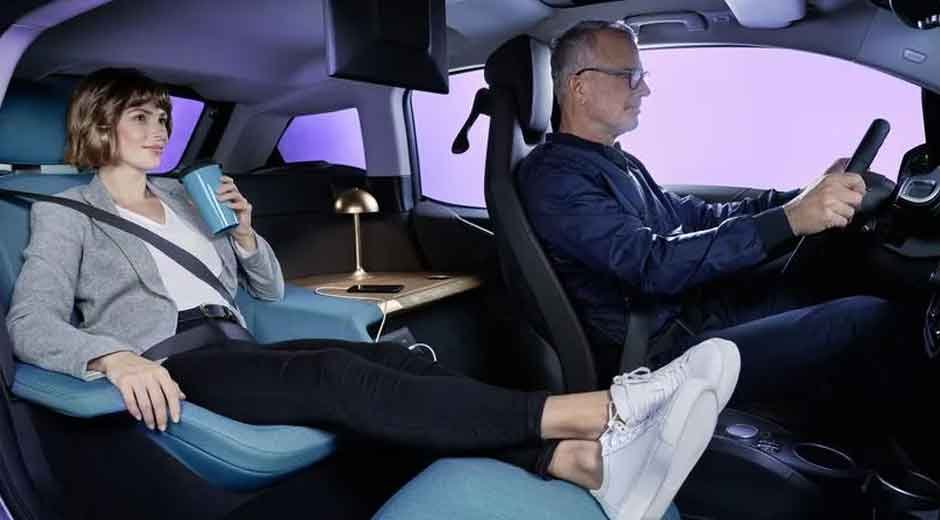Skip to the good bit
ToggleKey Takeaways
- Modern vehicles have evolved beyond mere transportation, integral to personal identity and daily routines.
- Technological advancements in cars enhance connectivity, safety, and environmental sustainability.
- Changing consumer preferences reflect a shift towards vehicles that align with lifestyle aspirations and values.
The Evolution of Car Ownership
Car ownership has dramatically evolved, becoming almost synonymous with modern life for many households. In years past, a vehicle was simply a way to get from one place to another. Today, it often represents an extension of who we are, influenced by our values, aspirations, and lifestyles. This deep integration of vehicles into daily routines is well-documented in transport and lifestyle research, showing how personal cars have come to symbolize independence and self-expression. For those interested in exploring the latest models that reflect these changes, you can learn more about how new cars can complement your lifestyle choices.
Technological and cultural shifts influence the automobile’s transformation. Young buyers prioritize digital compatibility over horsepower and cargo space, while older generations prioritize comfort, ease of use, and brand trust. This shift is reflected in how families, singles, and couples consider transportation beyond trips and remote work from the driver’s seat.
Technological Integration in Modern Vehicles
Car manufacturers are enhancing their technology to meet increasing consumer expectations. Infotainment systems like Apple CarPlay and Android Auto offer seamless smartphone integration, allowing drivers to access music, navigation, and communication tools. Over-the-air software updates and built-in Wi-Fi hotspots are expected, but customers view these digital capabilities as essential features. Advanced driver assistance systems (ADAS) like adaptive cruise control, lane-keeping assistance, and automated emergency braking are becoming standard, contributing to convenience and improved road safety. These innovations demonstrate the automotive industry’s commitment to transforming how we drive and how cars fit into our interconnected lives.
Environmental Considerations and Sustainability
The shift toward sustainability is reshaping the automotive market. Electric vehicles (EVs), hybrid options, and eco-friendly gasoline engines are increasingly popular as buyers become more ecologically conscious. Major automakers invest in advanced battery systems, lighter construction materials, and more efficient powertrains to deliver greener vehicles. For example, cars that meld electric motors with traditional engines showcase this dedication to a cleaner automotive future. The move toward electrification is also propelled by government incentives, improved charging networks, and a cultural push for climate responsibility, which you can read more about at The New York Times.
Customization and Personal Expression
Today’s drivers want their vehicles to be as unique as they are. Customization options abound, from exterior colors and wheel designs to interior upholstery and advanced sound systems. In the 2024 Consumer Automotive Personalization Survey, over 40% of potential buyers said customization influenced their purchasing decisions. Whether it’s selecting a vivid paint color, high-tech safety features, or in-dash applications, the desire for vehicles that mirror our identities grows ever stronger. Automakers now offer a broader selection of configurations and packages, ensuring every driver can have a car that feels uniquely their own.
Impact on Urban Living and Mobility
The proliferation of vehicles has undeniably impacted the structure and rhythm of city life. Urban sprawl and the design of neighborhoods have often revolved around car ownership. However, many cities are now seeking to balance vehicle use with more sustainable mobility options. Initiatives like pedestrian-only streets, broader bike lanes, and investments in public transit systems are gaining traction worldwide to improve the quality of life and reduce urban congestion. Some planners also focus on mixed-use developments, aiming to bring homes, offices, and shops within easy walking distance. For insights into how urban planning is evolving, see this coverage from BBC Future.
Safety and Convenience Features
Safety remains paramount in the transition to modern vehicles. New cars incorporate layers of safety mechanisms—from forward-collision alerts and blind-spot monitoring to rearview cameras and advanced airbag systems. Convenience features like keyless entry, remote start, and customizable driver settings further elevate the ownership experience. These innovations provide peace of mind and reflect the industry’s desire to deliver vehicles that support safer, more enjoyable journeys for drivers and passengers alike.
The Future of Car Ownership
Car ownership itself is transforming. Shared mobility, ride-hailing, subscription services, and car-sharing platforms offer alternatives to traditional ownership, particularly in dense urban centers. Flexible models like these cater to consumers’ growing preference for convenience and lower up-front costs. Additionally, advancements in autonomous vehicles promise further evolution, potentially redefining our relationship with cars and how they fit into daily life. The industry’s future is dynamic, driven by technological innovation and changing consumer values.
Final Thoughts
New cars have become woven into the fabric of modern lifestyles, serving not only as transportation but as reflections of personal identity, aspirations, and a commitment to sustainability. As technology and cultural values continue to advance, the automotive industry will keep innovating to ensure that vehicles remain relevant, enhancing daily routines and empowering drivers to connect with the world around them.







